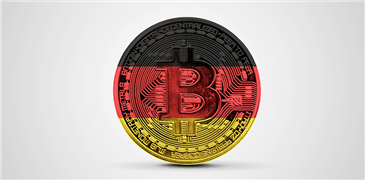More investments in digital assets expected as German legislation encourages interest from DACH investment funds

Investing in digital assets has been back in trend, especially since the bull run of BTC and altcoins, and has been brought into greater mainstream awareness by the media. In the German-speaking region, the investment behavior of funds in digital assets has so far been somewhat restrained by regulations. However, this could change with the new German Fund Location Act and other legislation and could even make Germany a trendsetter in the field of digital assets. The extent to which this is to be expected and which underlying criteria are decisive were examined in a study by an industry-related consortium.
Working group with scientists from MINDSMITH, OnGrid System, DEKIS and Tiger.Trade carried out a study regarding investment funds and their interest in digital assets and DeFi solutions. Experts and representatives from over 70 investment funds representing the DACH region (e.g., Germany, Austria, and Switzerland) were surveyed. The investigation coincided with the new German “Fund Location Act” (FoG-E), which since August 2, 2021, has allowed domestic special funds to invest up to 20% of their managed assets in digital currency assets such as Bitcoin.
The survey results from June 2021 show that 88% of the DACH-focused investment funds have not yet invested in digital assets, but almost half of all fund representatives surveyed would be interested in them and would like to deal in more detail. 7% of the respondents plan to start by the end of 2021, and 4% are already invested in digital assets. Although 4% does not seem like much at first glance—a good milestone has already been set for a rather conservative market landscape with a relatively young investment area.
For 86% of those surveyed, however, regulatory uncertainties are also one of the barriers to investing in digital currency. Regulatory ambiguities cause fear not to act and nor to make investments. However, it is precisely this area that made significant progress with Germany as a pioneer. There are the laws on the introduction of electronic securities, the law on securities supervision, and as already mentioned, the fund location law. Beyond the laws, however, a lack of service providers and infrastructure are seen as further obstacles for more than half of the respondents. The market is also developing in this regard.
Volatility, current unattractive price entry levels or a lack of belief in the values of digital assets are among other things mentioned as further obstacles in the study.
With blockchain technology, another innovation has emerged in the FinTech area, namely the so-called Decentralized Finance (DeFi), in which, in combination with smart contracts, transactions or investments can take place without a third party. Up to 14% can currently imagine using solutions from the DeFi area in the future. The question is also to what extent stablecoins (digital coins tied to fiat money) can be used as the basis in a regulated DeFi ecosystem. A digital euro, dollar, yuan, or other central bank digital currency (CBDCs) could certainly be used for this.
Within the next three years, an investment flow converted to the equivalent of $100 billion to $657 billion could be expected in the digital currency market from the DACH region.
Watch: CoinGeek New York panel, Media Influence: How News Reporting Affects the Digital Asset Market
Source: Read Full Article
